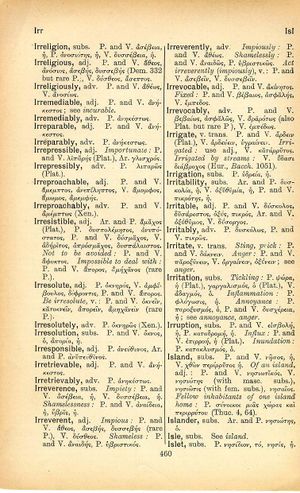irritate: Difference between revisions
From LSJ
ἀγαπήσεις τὸν πλησίον σου ὡς σεαυτόν → love your neighbor as yourself, thou shalt love thy neighbour as thyself, love thy neighbour as thyself
(6_9) |
(D_5) |
||
| Line 6: | Line 6: | ||
{{Lewis | {{Lewis | ||
|lshtext=<b>irrītātē</b>: adv., v. 1. [[irrito]],<br /><b>I</b> P. a. fin. | |lshtext=<b>irrītātē</b>: adv., v. 1. [[irrito]],<br /><b>I</b> P. a. fin. | ||
}} | |||
{{Gaffiot | |||
|gf=<b>irrītātē</b>, en excitant la colère || -[[tius]] Amm. 22, 15, 19. | |||
}} | }} | ||

